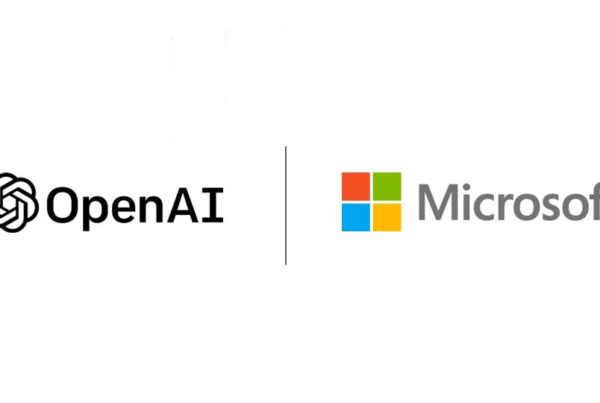AI startup Modular has successfully secured 250 million US dollars in fresh funding in September 2025. The investment round was led by the US Innovative Technology Fund founded by Thomas Tull, with participation from major backers including DFJ Growth, GV, General Catalyst, and Greylock. This deal pushed Modular’s valuation to 1.6 billion dollars, reinforcing its position as one of the most important software players in the artificial intelligence space with a focus on cross-chip solutions.
The move is seen as strategic since Modular enters the market at a time when Nvidia continues to dominate AI computing. By adopting a vendor-neutral approach, Modular aims to create an open ecosystem that gives developers far more flexibility. Its platform enables AI applications to run across different chips without rewriting code, a breakthrough that could reshape the industry landscape.
Modular’s Ambition in AI
Founded in 2022, Modular was born with a simple yet ambitious mission: to create a universal software layer that breaks developers’ dependence on a single chip vendor. The startup is led by Chris Lattner, widely known as the creator of Apple’s Swift programming language.
Within a short period, Modular has captured the attention of the global technology community. The company emphasizes not only technical efficiency but also the flexibility businesses need to adapt quickly to the fast-changing hardware market. With a team that now numbers 130 employees, Modular has grown rapidly in Silicon Valley and is increasingly seen as a challenger to Nvidia’s dominance.
Innovative Cross-Chip Technology
Modular’s core products are divided into two main components, Mojo and MAX. Mojo is a programming language that offers Python-like simplicity while delivering high performance across various hardware platforms. MAX serves as the inference engine that ensures AI models can run efficiently on multiple chips.
This approach addresses long-standing complaints from AI developers often locked into closed ecosystems. For years, Nvidia has dominated the market through CUDA, making transitions to other hardware costly and complex. Modular provides a solution that expands flexibility without sacrificing performance.
In addition, Modular has plans to expand its capabilities beyond inference to cover AI training as well. This move is crucial since training requires significantly greater computing power and higher costs. If Modular successfully enters this space, it could vastly broaden its market reach.
Support from Major Investors
The 250 million dollar funding recently secured by Modular reflects investors’ confidence in the company’s future. Thomas Tull, through the US Innovative Technology Fund, stressed that Modular’s technology could be a key driver for healthy competition in AI. Other investors, such as Greylock and GV, also believe the platform has the potential to transform the industry.
For these backers, Modular’s success is not just about financial returns but also about creating balance within the global AI ecosystem. By offering a viable alternative to Nvidia, companies and developers gain more options in shaping their technology strategies.
The Competition with Nvidia
Nvidia remains the king of AI computing, with a massive market share in GPUs. However, this dominance has also raised concerns of monopolistic power that stifles innovation. Many companies want to reduce their dependence on CUDA but have found it nearly impossible without a strong alternative.
Modular seeks to fill that gap by offering an independent software layer. Rather than trying to replace Nvidia outright, Modular’s strategy is to enable applications to run smoothly on other platforms. This makes the startup a potential ally for AMD, Apple, and other chipmakers seeking to gain ground.
Technical and Industry Challenges
Despite its ambitions, Modular faces significant hurdles. First, ensuring stable performance across multiple chips is far from easy. AI developers demand low latency, memory efficiency, and full compatibility with modern models. Any failure to meet these standards could quickly erode trust.
Second, Nvidia’s ecosystem is already mature with a vast developer community. Modular must work hard to convince engineers to test and eventually migrate to its platform. Strong documentation, technical support, and education will be essential to lowering adoption barriers.
Third, competition from open-source initiatives like AMD’s ROCm or other frameworks continues to intensify. Modular will need to prove that its solutions are not only practical but also superior in performance and ease of use.
Industry and Expert Reactions
Industry observers have welcomed Modular’s massive funding with optimism. Some analysts see the move as a sign that the market is eager for alternatives beyond Nvidia. On the other hand, skeptics argue that the road ahead remains long, given Nvidia’s deeply entrenched position.
Still, backing from world-class investors provides Modular with the resources it needs to scale. In the short term, its priority is to expand adoption of Mojo and MAX while strengthening partnerships with chipmakers. If successful, Modular could emerge as a key player in fostering healthier competition in the AI world.
The Future of Modular
With 250 million dollars in fresh capital, Modular plans to expand its team, accelerate research and development, and build a stronger distribution network. Its central focus is to deliver solutions that enterprises can deploy at scale.
In an interview, Chris Lattner emphasized that Modular does not aim to be Nvidia’s direct rival. Instead, the company’s long-term vision is to build an open ecosystem that accelerates innovation across the board. This underlines a strategy that seeks not only profit but also fundamental change in how AI workloads are executed.
Potential Impact on the AI Ecosystem
If Modular succeeds, the ripple effects could be enormous. Companies that previously struggled to adopt AI due to high costs may find new opportunities. Non-Nvidia chipmakers would also gain more chances to compete effectively.
Moreover, the open-source ecosystem could benefit, since Modular’s technology fosters more collaboration and inclusivity. With a business model centered on software, Modular may well become a crucial catalyst in reshaping the AI industry over the next decade.
Modular’s latest funding marks a turning point in AI industry competition. With significant backing and global investor support, the company is poised to challenge the status quo long dominated by Nvidia. If its strategy succeeds, Modular could pioneer a more open, competitive, and inclusive AI ecosystem.
For more insights into startups and the latest in global technology, readers can explore related coverage on Olam News.




